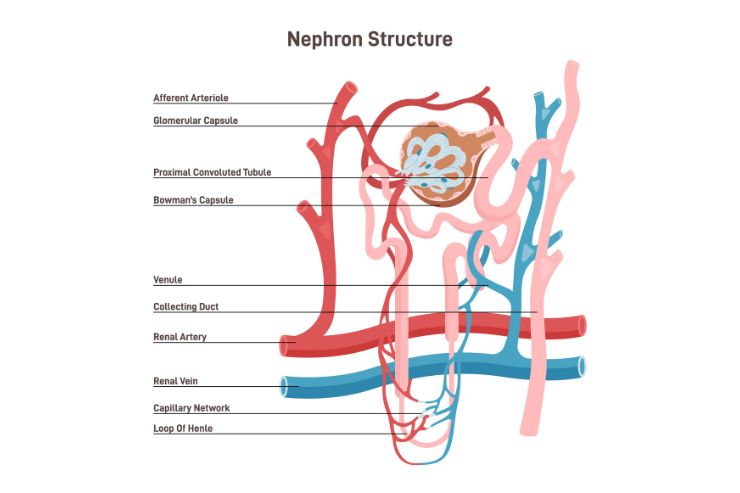
Nephrotic syndrome is a kidney disorder characterized by significant proteinuria (excess protein in urine), hypoalbuminemia (low blood protein levels), edema (swelling), and hyperlipidemia (high cholesterol). It arises from glomerular damage, impairing the kidneys’ ability to filter waste and fluids properly. Symptoms include swelling, foamy urine, weight gain from fluid retention, fatigue, and elevated cholesterol levels. Complications may include increased susceptibility to infections, blood clots, and malnutrition, particularly in children. Treatment involves medications like corticosteroids, dietary adjustments to reduce salt and fluid intake, diuretics for managing edema, and addressing underlying conditions such as diabetes or lupus that contribute to the syndrome.
Nephrotic syndrome can be caused by various underlying conditions, including:
Symptoms
Symptoms of nephrotic syndrome may include:
Complications
Complications associated with nephrotic syndrome include:
Treatment
Treatment of nephrotic syndrome aims to reduce proteinuria, control symptoms, and manage underlying causes:
Nephrotic syndrome requires careful management and monitoring by healthcare professionals to prevent complications and preserve kidney function. If you or someone you know shows symptoms of nephrotic syndrome, prompt medical evaluation is crucial for proper diagnosis and treatment planning.

Leading Renal Care: Expertise and Compassion at Dr. Virinder’s Kidney Clinic and Dialysis Centre. Dedicated to personalized kidney health solutions, ensuring comfort and confidence in every step of your journey to better renal wellness.